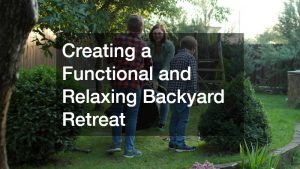An investment property is a real estate property that you purchase with the intention of getting a return on investment through renting it out or selling it in the near future. While the most common tactic of acquiring an investment property is by buying it, you also have the option of building one yourself.
Of course, building your own investment property isn’t an easy endeavor. It costs a lot of money and there are no guarantees when it comes to the real estate market. But if you have the funds and are bold enough to take the plunge, building your own investment property does come with a few benefits that buying doesn’t.
Advantages of Building an Investment Property
1. Meeting market demand
Unlike buying, you can build an investment property based on what’s in demand in the market today or what people are spending the most money on. You might even be able to tailor the property for future trends and demands. If you do your research right and talk to the right experts, you may be able to build a property that you know is going to sell for a lot in the future or will bring in consistent income through rent.
2. Instant equity
You may be able to get instant equity if you build an investment property. Once you’ve bought the land and all construction on the property is done, you can have the property re-valued by your lender. If you play your cards right, your property may be valued higher than its initial value, creating instant equity for your property. If you maintain the general upkeep of your property, there is also the chance of its value appreciating or increasing over time.
3. Tax deductions
If you own a rental property that you regularly maintain, then you may be able to deduct maintenance costs and expenses when you pay your taxes. You might also be able to deduct mortgage interest, property tax, and depreciation rates.
4. It may be cheaper
This is, of course, entirely dependent on where you choose to build, what materials to use, and who you hire. But if you get a good deal on the land, the equipment, materials, and the staff, constructing your own property could become cheaper than buying it. If you yourself are a designer, architect, or engineer, then you can most definitely save a lot of money by building it yourself.
5. Customization options
Because you own the property and are paying for it, you get to call all the shots when it comes to its design and its construction. You get the final decision on what the finished property will look like and get to approve or reject changes and improvements. As the owner, you have the privilege of deciding nearly everything about the property, from its design to its construction.
You can build to fit your particular tastes or build after the needs of the market. Unless you’d prefer to leave the dirty work to professionals like architects and designers, it is literally all up to you. Just be sure to work with a reliable supplier for your construction equipment needs.

Disadvantages of Building an Investment Property
Just like with everything else, building an investment property can come with its disadvantages. In fact, some of its advantages can become disadvantages themselves.
1. Location
Finding a good location in a suitable area and within your budget as well can be hard. You might not be able to find many vacant lots in your area that fit all your needs and ideals. At best, you might have to look for land somewhere else and further out, or buy out an existing property and knock it down. Either way, finding the right location could be an issue.
2. Might not be cheaper after all
Other than buying the land, building your own property comes with extra costs including but not limited to construction fees, labor costs, mortgage rates, and many more. Just as being in charge of all decisions has its advantages, it has disadvantages in that you might have to be in charge of all finances as well. Even if you manage to work within your budget, for the most part, home construction isn’t an easy or inexpensive business and additional fees might rear their ugly heads out of nowhere.
Moreover, while you’re building your property, it’s not earning any rental income, so until it’s completed, you’re on your own. Construction of a house, depending on its size and design, could take from 6 months to a year, so you’d have to be prepared to continue paying off your loans and other fees with your own money for at least a year ahead before you can expect an investment return.
3. Developments in your area may decrease your property’s value
Your property won’t be the only brand-new house in a growing neighborhood in a few years. Because of supply and demand, if more properties are erected in your area than there is demand, then the value of your property might decrease. Newer and bigger apartments, houses, or buildings could be built around it, resulting in more loss of property value and once you’re finished with the construction, your property is only getting older from there.
In a few years’ time, you’ll be competing with other properties on your block. All of this can potentially harm your property’s value and it’s worth taking into consideration what you can do to stay ahead.
4. Maintaining your property
Maintenance and repair of the building can cost a lot in the future, especially for particularly large damages. As the landlord or owner, you’d be in charge of fixing everything and making sure that things run smoothly. If you have tenants, you might be able to get them to pay for any damages they cost or at least pay for half of it but for damages due to time, weather, or other natural or external factors, unfortunately, you’ll be the one answering to all of that.
Investing in property is always going to be a tough choice, as well as a huge step. After all, you’re investing your future in a market that forever changing, where a lot of things can go wrong and a lot of money might be lost. Finding the right fit for you, whether it’s buying or constructing, is all about assessing your situation.







